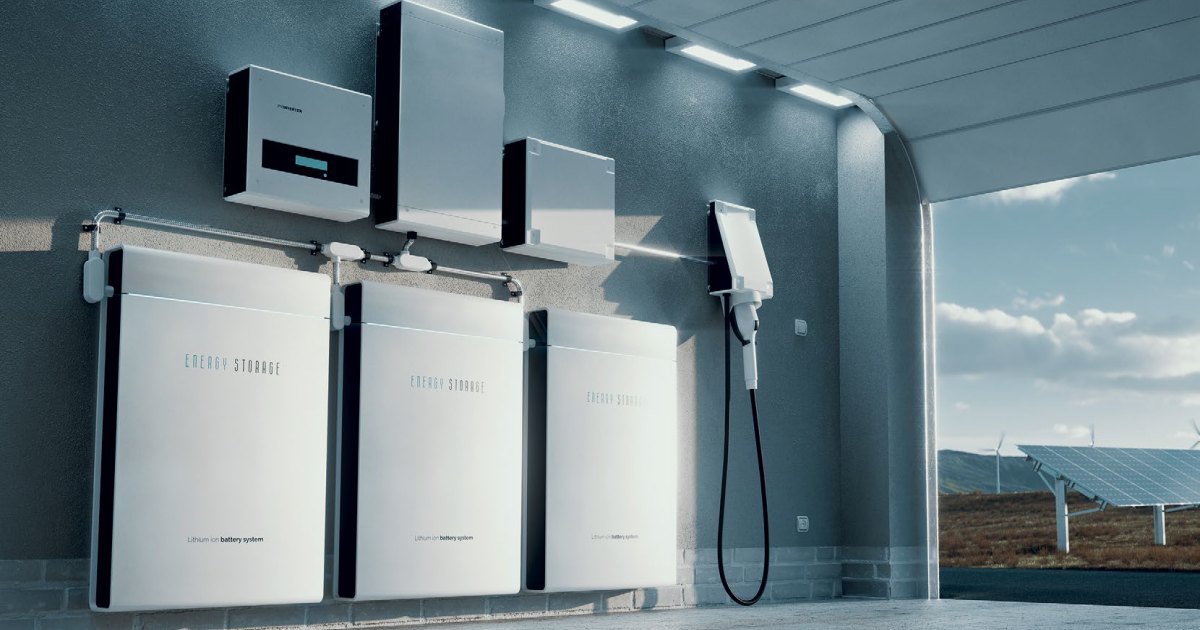
A Private Members Bill introduced in February aiming to make home batteries cheaper may have lapsed, but its spirit lives on in recent recommendations from the Smart Energy Council.
In order to achieve 82% renewables or a 43% emissions reduction by 2030, the Smart Energy Council says Australia’s going to need *a lot* of battery storage – including a bunch of home batteries.
Many of Australia’s solar power system owners are willing and wanting to install a home battery, but cost remains a major barrier. There are some subsidies and “no interest” loan schemes available in several states and territories, but the cupboard is bare at a national level.
In February 2022, Member for Indi Dr. Helen Haines introduced a Private Members Bill – the Renewable Energy (Electricity) Amendment (Cheaper Home Batteries) Bill 2022. The legislation sought to reduce the up-front cost of installing solar batteries by including residential energy storage under Australia’s Small-scale Technology Certificate (STC) scheme; which is part of the Small-scale Renewable Energy Scheme (SRES). STCs are the mechanism directly connected to the national “solar rebate”.
Dr. Haines’ bill lapsed on 11 April 2022 with the calling of the federal election.
Last week, the Smart Energy Council released a report titled “Unleashing Renewable Energy Storage”. The Executive Summary states:
“We need household battery storage, electric vehicles as batteries on wheels, community and commercial battery storage, large-scale storage and long duration solar thermal and pumped hydro, underpinned by national, state and territory Renewable Energy Storage Targets.”
On the household battery storage front, the report says modelling underpinning the Albanese Government’s commitment to 82% renewable energy in the electricity grid assumed “8 gigawatts” of capacity. I wasn’t able to quickly locate the modelling mentioning 8 gigawatts, but that is a shedload of batteries. Even if the Council meant 8 *gigawatt-hours* of capacity, it’s still a lot – equivalent to more than 595,000 Tesla Powerwalls.
Getting back to costs and on a related note, the price of Tesla Powerwall recently went up – again. There are alternatives to the Powerwall offering the same sort of functionality (and other solar batteries), but storage will remain out of reach for many Australians for the foreseeable future.
Which leads us to…
Including Home Batteries (And Electric Vehicles) In The SRES
In the report’s section on home batteries, the Council has recommended a change to SRES regulations:
“Changes in Provision 19D covering the certificates to be created, whereby households can have installed with an appropriately sized battery*, conditional to be Virtual Power Plant* ready as is the case in South Australia, or capable of smart managed charging would receive 15 years of certificates to 2030.”
The notes on the asterisks indicate a battery could be a stand-alone battery or an EV with ‘bidirectional’ charging capability, and briefly define a Virtual Power Plant. The reference to South Australia is a bit dated as SA’s subsidy was axed by the Malinauskas Government some months ago.
The Smart Energy Council’s recommendation is a little different to what Dr. Haines put forward in her Bill, which proposed a sliding scale of certificate issue depending on installation date. The inclusion of electric vehicles is also an interesting twist.
Among the thorny issues with both approaches is 15 years of certificates from the get-go. For example, many home battery warranties only cover 10 years, and capacity degradation during a battery’s life also need to be considered. Another big question is would such a scheme increase the base cost of home batteries in Australia as the various players seek to cash in.
But the Smart Energy Council has also offered an alternative recommendation not involving tinkering with the SRES – the Australian Government could consider implementing no-interest loans at a national level.
The full “Unleashing Renewable Energy Storage” report can be viewed here.

 RSS - Posts
RSS - Posts



Not mentioned in this piece is that Helen Haines is a Teal ‘Independent’ i.e funded by multi-millionaire activist and Smart Energy Council director Simon Holmes à Court.
Thus the Smart Energy Council releasing their version after Haines’ bill lapsed isn’t really an independent effort, rather just another branch of the network pushing the agenda.
Incorporating EVs ($50,000+++) into the SRES simply provides a subsidy to the wealthier members of society by shifting the cost of purchase pain. Home batteries are more accessible, but could the majority of Australians find $10,000+ without tapping their mortgage or superannuation?
No interest loans would make batteries more accessible true, but since batteries fail to repay themselves over the course of their life it seems kind of pointless – power needs to rise 100% or more to justify the expense, probably triple to justify a Tesla.
Seems more like a work in progress than a solution, though climate change investors will doubtless eye the potential revenue with interest.
George Kaplan.
“Not mentioned in this piece is that Helen Haines is a Teal ‘Independent’ i.e funded by multi-millionaire activist and Smart Energy Council director Simon Holmes à Court.”
George, it seems to me you are regurgitating Coalition/right-wing media BS propaganda.
Firstly, Helen Haines has used the orange (NOT teal) colour in her campaigns.
Secondly, campaign funding for Helen Haines has come from many people, and she states she discloses the name and amount of every donation above $1,000, at regular intervals (above and beyond AEC requirements). I don’t see the same exemplary behaviour from the major parties.
Thirdly, re donations:
https://www.helenhaines.org/donate/
Holmes à Court told the National Press Club on 16 Feb 2022:
https://nofibs.com.au/transcript-simon-holmes-a-court-address-to-the-national-press-club-of-australia-on-independents-and-climate-the-hope-to-end-the-lost-decade/
https://www.theguardian.com/australia-news/2022/may/01/factcheck-is-it-fair-to-label-candidates-challenging-liberal-moderates-fake-independents
Inconvenient evidence for your false narrative, eh George?
Not a big fan of subsidies for home batteries. It’s just welfare for the already wealthy (let’s face it, they are the only ones who can afford them) and drives up prices for all.
Allocating money to private home batteries represents really poor value for taxpayer money. If there is an amount of public money to be allocated to storage far better for it be used for community/grid level storage which will have much better capacity utilisation and be of benefit to everyone, not just the wealthy.
I’m OK with governments putting storage into low cost/public housing and govt buildings.